France: Day 2 - Morning at Hine
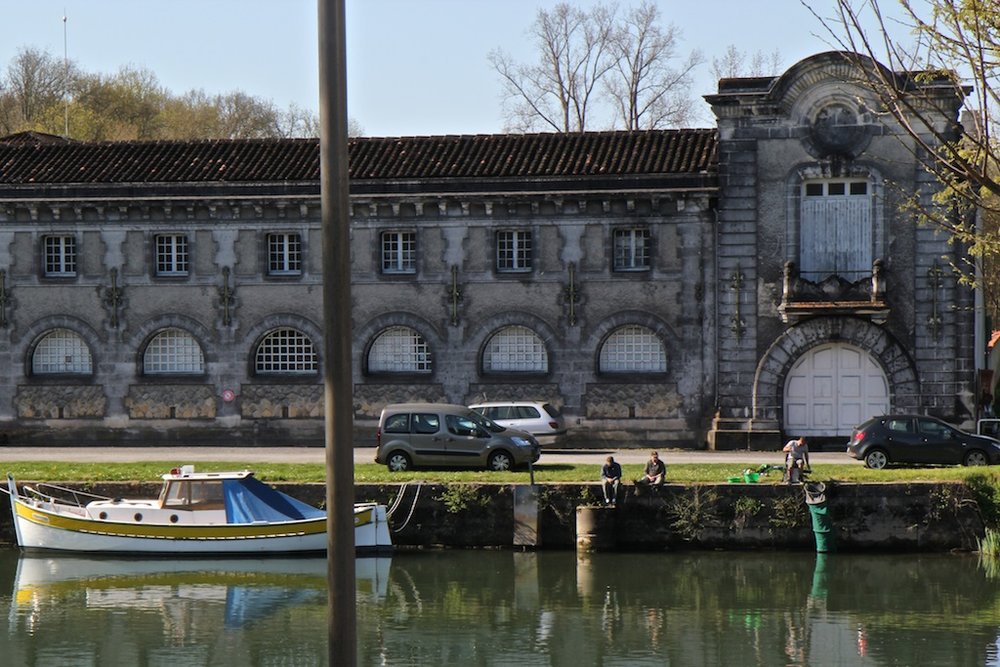
Let me start this post by saying this: we did enough today to justify and entire week's worth of articles. I could write ten paragraphs just for every hour we spent with Maurice Hennessy. That being said, I don't have a week to string these stories out, so I'm going to split it up between the first and second parts of the day. We woke up early at Chateau de Bagnolet, grabbed a pastry and a cup of coffee, and jumped in the van for the twenty minute drive to Jarnac—the neighbor to Cognac just a short trip down the river Charente. We had a 10 AM meeting with the house of Hine, one of the more interesting and forward-thinking producers from the old world of French brandy.

In the new age of distiller/producers, where the name of the actual distillery is often the name of the brand itself, it's easy to forget that the idea of DIY marketing is quite new to the booze world. For hundreds of years, the people producing the great brandies of France had nothing to do with blending them, marketing them, or even delivering them into the hands of customers. The Cognac industry was (and mostly still is today) run by negociants who would purchase different distillates from small producers and handle the entire business side of the trade; often shipping their casks abroad by boat, down the Charente River, where they would make their way to various merchants all over the world. Surprisingly enough, it was an influx of British and Irish entrepreneurs that established some of the earliest Cognac houses we still know today. Richard Hennessy, of course, was from Ireland, and it was in a French prison during the Revolution that he met Thomas Hine—an Englishman from a family of Cognac merchants sent southward to learn the French language. Hine would eventually be released, fall in love with the daughter of a blending house, and change the company to his namesake when he and his wife eventually inherited the family business. More than 200 years later, there is still a strong link between Hine and the UK. Their head commercial director, Carolyn Meunier—who met us at the estate today—is from England originally herself.
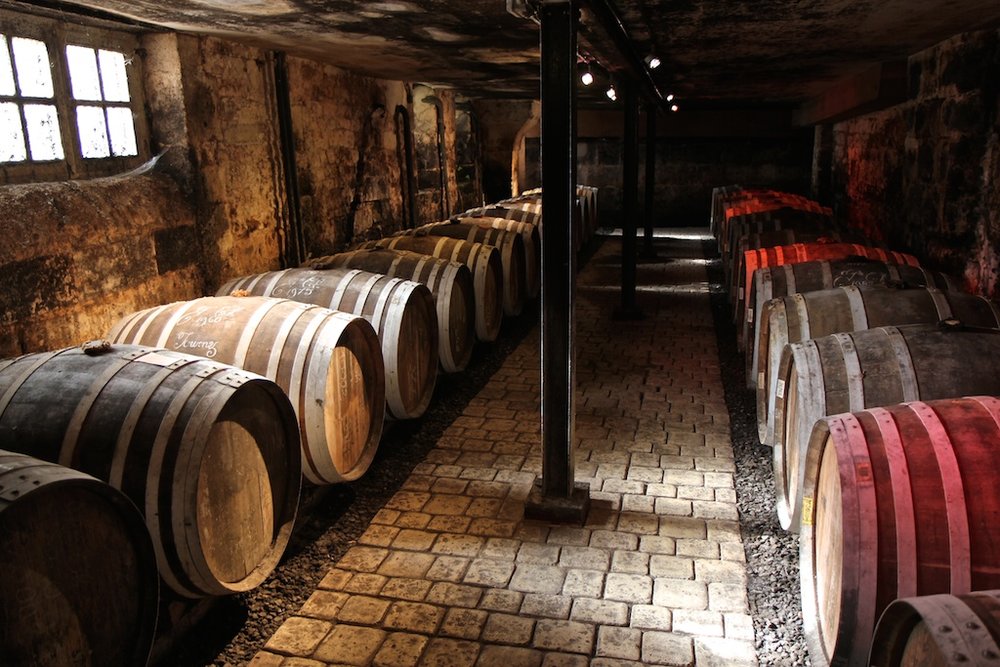
While there is a small warehouse at Hine facility in Jarnac, most of their Cognac is aging outside the city limits. In fact, due to those strong relationships in the UK, a number of what they call their "early landed" vintage casks are aged at Glenfarclas distillery in the Scottish Highlands. While releasing vintage-dated casks in France is a bureaucratic nightmare (due to an abundance of laws requiring a licensed official to be present for all aspects of anything eventually being labeled with a specific numerical age statement) there surprisingly is no law that states French Cognac must be aged in France. Therefore, Hine is able to send a number of "early-landed" casks (meaning casks that are leaving Jarnac for the UK and arriving "early" in their maturation period) back home, where they have an age-old agreement to use the Her Majesty's bonding customs. That means Hine can release a number of vintage-dated products without being restricted by French guidelines using their UK-based stocks.
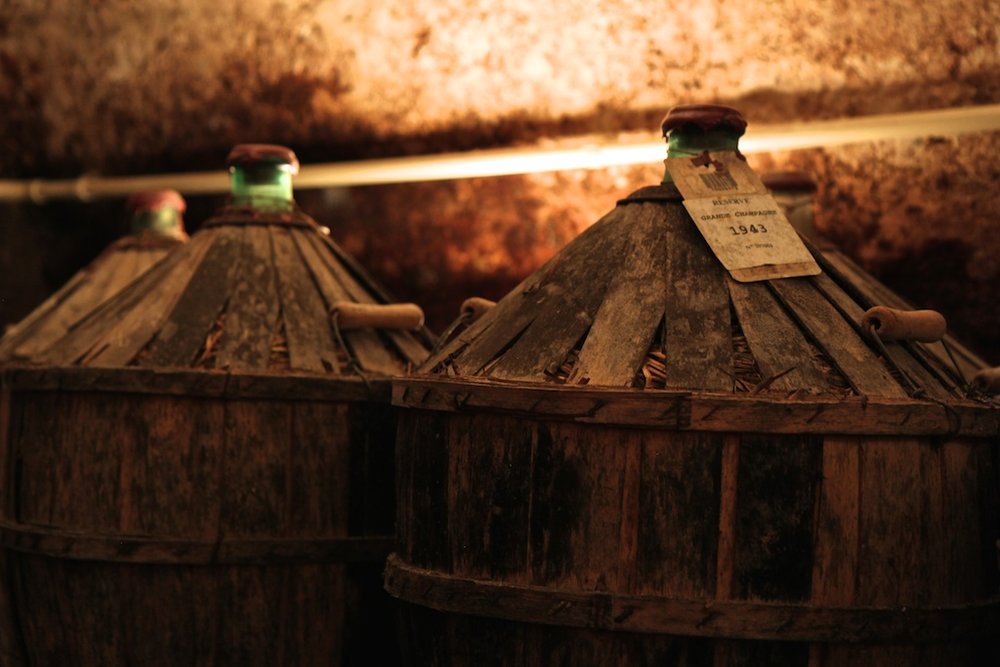
Sometimes it's easy to think the old demi-johns laying around Cognac warehouses are just cheesy props or marketing materials for tourists, simply because of the ridiculous maturity or provenance of these brandies. However, it's totally common to have Cognac from the mid-1800s just sitting there in glass, right on the shelf, waiting to be used in a special blend or rare bottling. What is uncommon to see, however, is a WWII vintage. The Nazis shutdown a lot of production in France during their reign. 1943 is not a year I've seen at a producer previously.
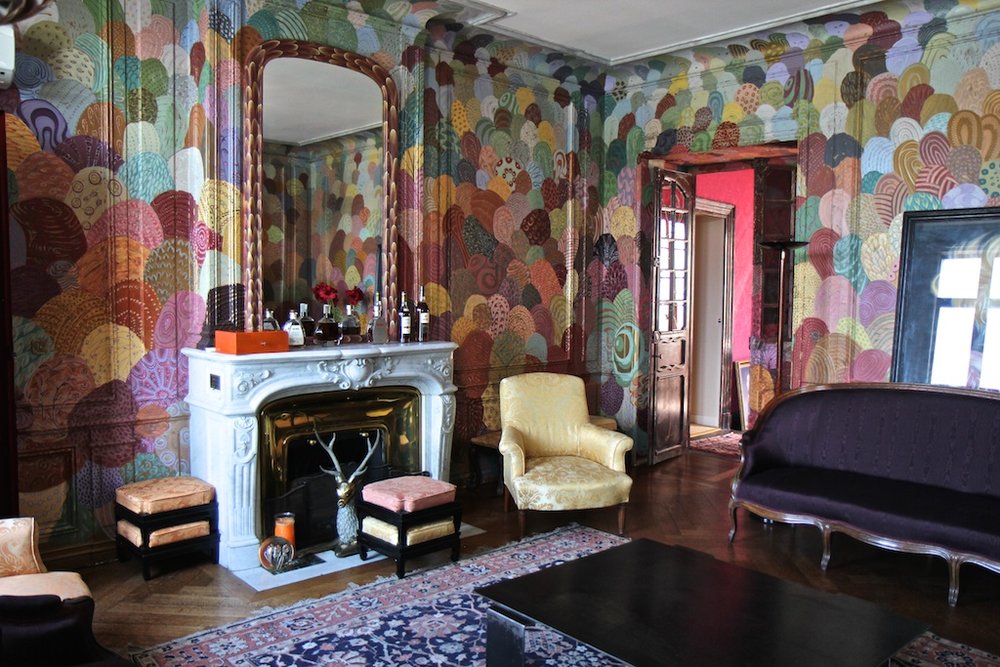
It's also easy to associate big Cognac houses with the glitz and glamour of big marketing (Hine does have an amazingly hip and modern tasting room), but don't get confused by their attention to aesthetics. Many Cognac houses are often sticklers for the highest quality of spirits and pay extreme attention to detail. Just because they're technically a blending house also doesn't mean they don't handle production. While Hine does purchase brandies from producers around the region, they also own 110 hectares of their own fruit, which they distill under their own domaine name: Bonneuil. In fact, you can buy a single estate version of entirely domaine-bottled Hine Bonneuil Cognac in their gift shop (which I did).
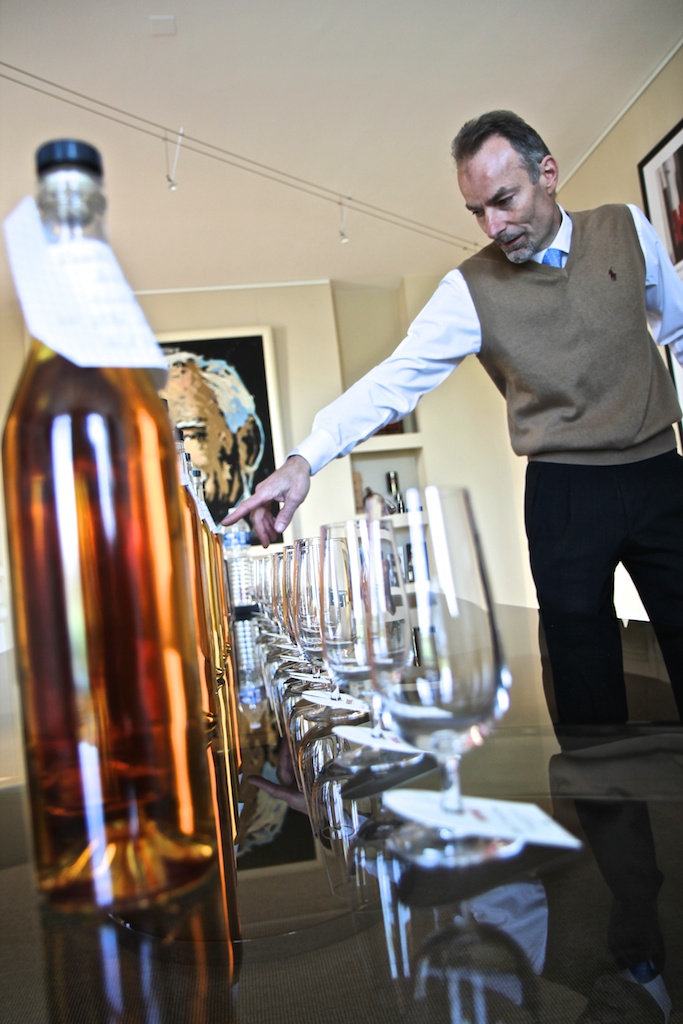
But, of course, just because they're buying a lot of juice from other producers, don't think Hine doesn't understand the production of those other distillers down to the finest of details. Eric Forget, the cellar master and director at Hine, is an incredible wealth of knowledge when it comes to every inch of Cognac terroir. He worked for Hennessy for many years and was actually in charge of managing the relationships between the company and its 1500 contracted growers. That makes him the ideal person to speak to when it comes to understanding what makes each distillate unique, as he has a strong working knowledge concerning hundreds of different estates. Eric had also arranged a selection of available barrel samples for us, from which he explained the significance of their individual origins and what made each one unique. For someone looking for more specifics from his Cognac, the presentation was utterly fantastic. I was spellbound before we had even tasted anything!
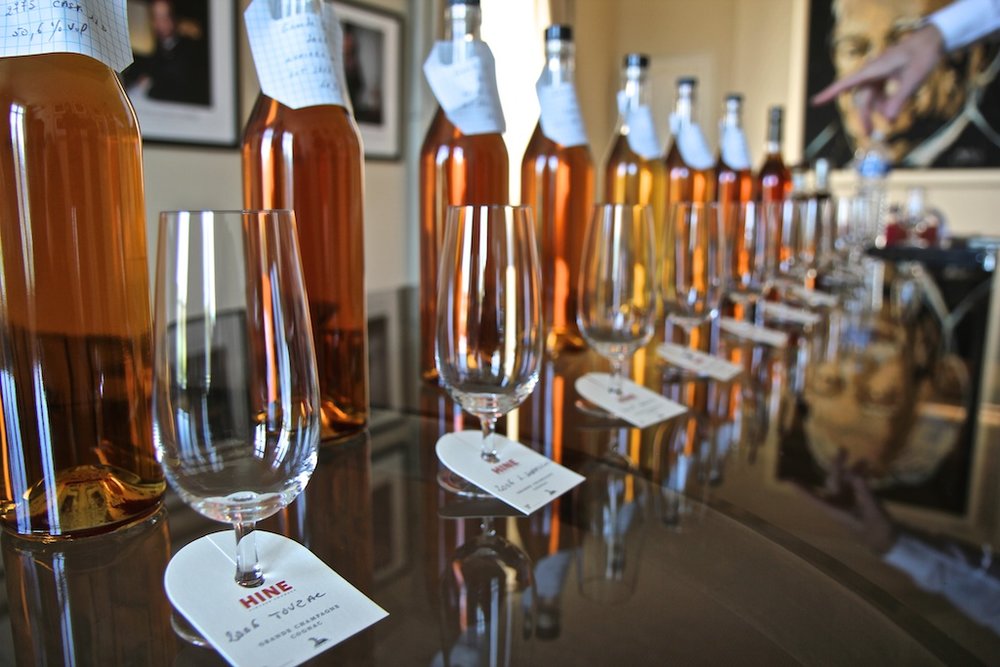
Besides their willingness for total transparency and detail-based approach to marketing, one of the reasons I was so excited to work with Hine was the fact that they purposely use a very low char level in their barrels. That means more fruit and less oak in the ultimate spirit. That means more terroir and less wood. That means a better understanding of the region in every sip. That means a better connoisseurship of the spirit and what makes it unique. We found two casks that really jumped out at us, both very different in their personalities. One was a lighter nine year old Grand Champagne brandy, lithe and fruity in its profile. The other a richer 2002 vintage with more supple richness and spice on the finish. Based on today's experience, I'm pretty sure we'll be doing a lot more business with Hine in the near future.
They made their case. We were impressed. We countered with ours. A deal was struck. That's how relationships should work; with both parties equally enthused and excited about the future.
-David Driscoll
